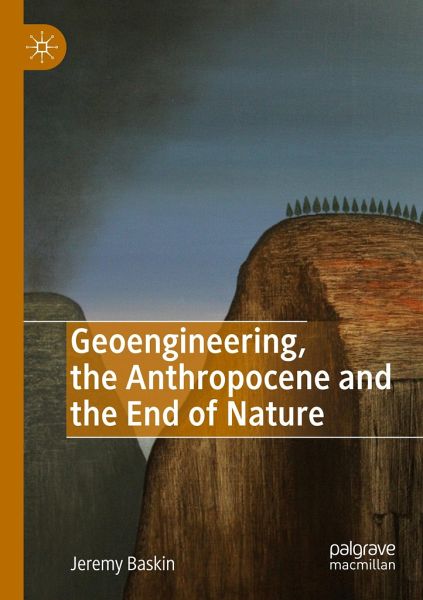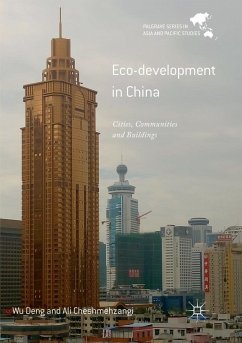
Geoengineering, the Anthropocene and the End of Nature
Versandkostenfrei!
Versandfertig in 6-10 Tagen
38,99 €
inkl. MwSt.
Weitere Ausgaben:

PAYBACK Punkte
19 °P sammeln!
This book takes a critical look at solar geoengineering as an acceptable means for addressing climate change. Baskin explores the assumptions and imaginaries which animate 'engineering the climate' and discusses why this climate solution is so controversial. The book explains geoengineering's past, its revival in the mid-2000s, and its future prospects including its shadow presence in the Paris climate accord. The main focus however is on dissecting solar geoengineering today - its rationales, underpinning knowledge, relationship to power, and the stance towards nature which accompanies it. Ba...
This book takes a critical look at solar geoengineering as an acceptable means for addressing climate change. Baskin explores the assumptions and imaginaries which animate 'engineering the climate' and discusses why this climate solution is so controversial. The book explains geoengineering's past, its revival in the mid-2000s, and its future prospects including its shadow presence in the Paris climate accord. The main focus however is on dissecting solar geoengineering today - its rationales, underpinning knowledge, relationship to power, and the stance towards nature which accompanies it. Baskin explores three competing imaginaries associated with geoengineering: an Imperial imaginary, an oppositional Un-Natural imaginary, and a conspiratorial Chemtrail imaginary. He seeks to explain why solar geoengineering has struggled to gain approval and why resistance to it persists, despite the support of several powerful actors. He provocatively suggests that reconceptualising our present as the Anthropocene might unwittingly facilitate the normalisation of geoengineering by providing a sustaining socio-technical imaginary. This book is essential reading for those interested in climate policy, political ecology, and science & technology studies.














